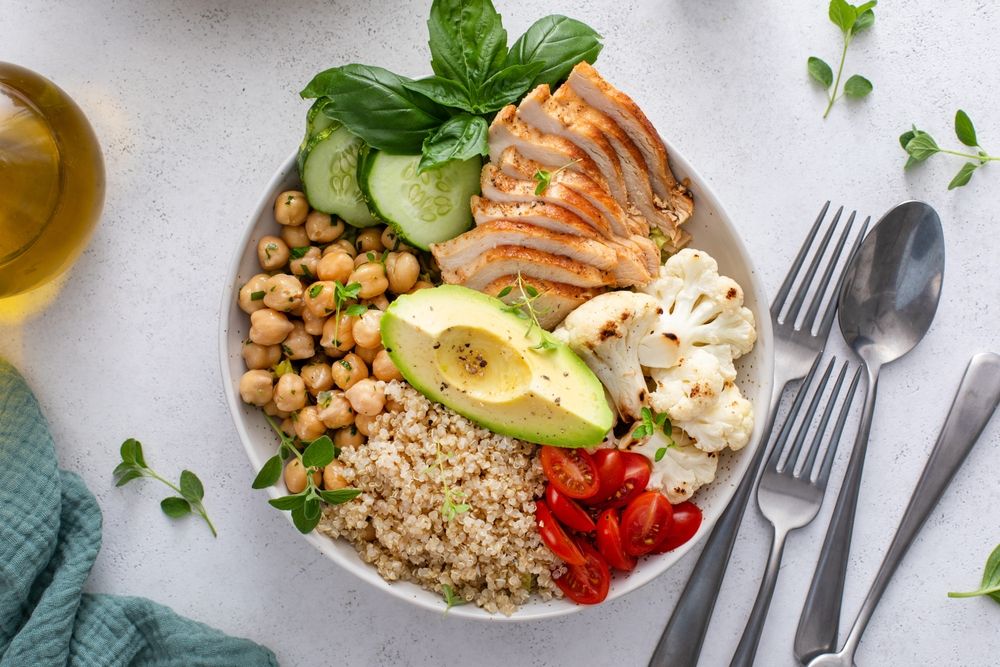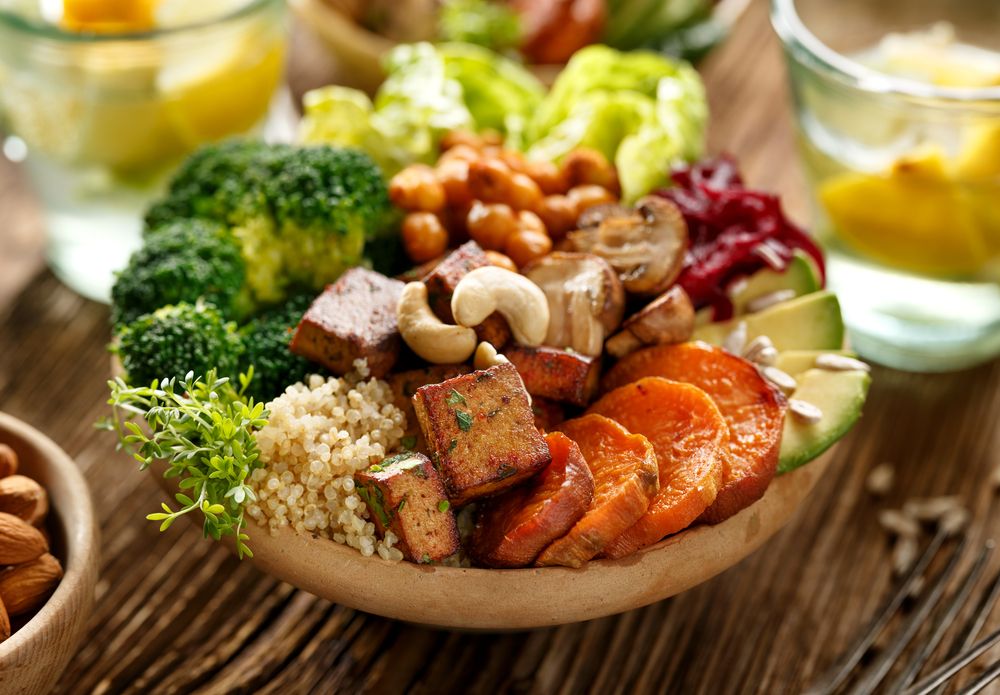
To achieve healthy, sustainable weight loss, it’s essential to include adequate protein in your daily diet. Protein helps you stay fuller for longer by reducing hunger hormones, which can curb overeating and limit between-meal snacking. Additionally, protein has a higher thermic effect of food (TEF) than fats or carbs, meaning your body burns more calories digesting it. Plus, protein supports muscle mass, which is key for a healthy metabolism.
However, while getting enough protein is crucial, the quality of your protein matters just as much. Not all high-protein foods aid weight loss effectively. Many protein sources lack essential nutrients, and relying too heavily on them can actually hinder your progress. Diversifying your protein intake not only keeps meals interesting but also ensures you get a wide range of nutrients that support your overall health and weight loss goals.
Whether you’re a seafood lover, dairy enthusiast, or prefer a plant-based approach, we’ve curated the best high-protein foods to support your weight loss goals.
Choosing a Healthy Protein for Weight Loss
The best high-protein foods for weight loss meet these criteria:
Low in Fat: Low-fat protein sources are naturally lower in calories. Since weight loss requires a calorie deficit (burning more calories than you consume), choosing low-fat, high-protein foods can make it easier to reduce overall calorie intake.
Low in Calories: Many low-fat protein foods are also low in calories. Additionally, low-carb, high-protein options help keep calorie intake down, as carbs are another calorie-dense macronutrient.
Rich in Protein: For a high-protein diet to support weight loss, it’s essential to choose foods that are protein-rich. According to FDA guidelines, a “good” source of protein contains 10-19% of the recommended daily intake (RDI) of protein (5-9.5 grams), while an “excellent” source has 20% or more (over 10 grams).
To support your weight loss journey, here’s a list of high-protein foods that will keep you satisfied and help maintain muscle mass:
- Eggs
- Beans
- Greek Yogurt
- Pea Protein
- Chicken Breast
- Regular Yogurt
- Tuna
- Quinoa
- Tofu
- Salmon
- Lentils
- Walnuts
- Whey Protein Powder
- Casein Protein Powder
- Low-Fat Cottage Cheese
Eggs
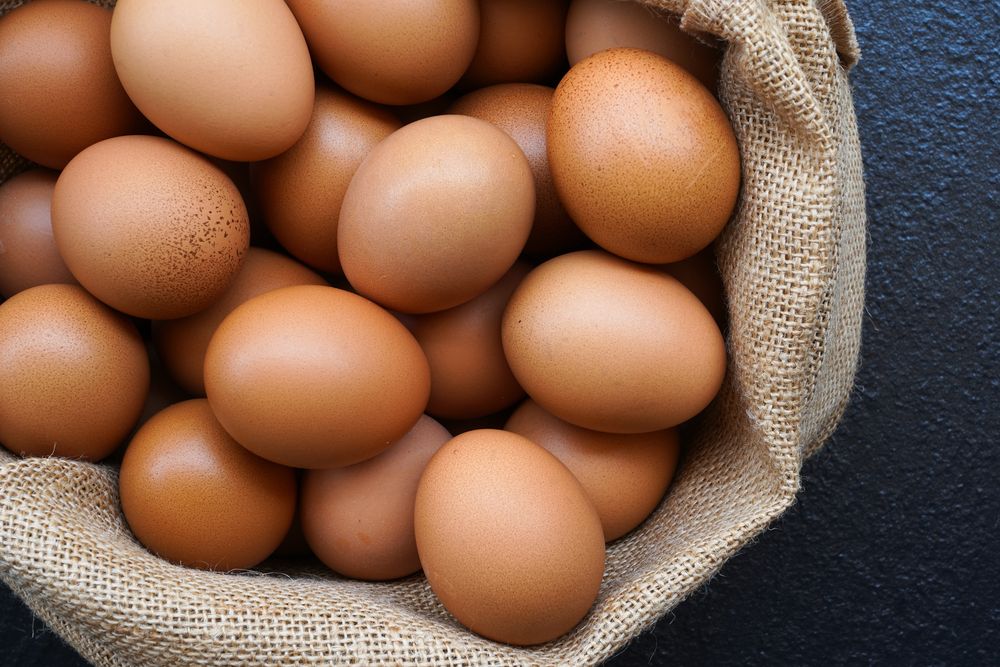
You can enjoy eggs in countless ways—hard-boiled, scrambled, sunny-side up, or soft-boiled in a steaming bowl of ramen. However you prefer them, eggs consistently deliver a lean protein boost.
“At just around 70 calories each, eggs pack 6 grams of satisfying, appetite-controlling protein that helps prevent overeating later in the day,” say The Nutrition Twins, Tammy Lakatos Shames, RDN, CDN, CFT, and Lyssie Lakatos, RDN, CDN, CFT. “Research even shows that having eggs for breakfast can reduce calorie intake for the next 24 hours. Plus, they’re a good source of vitamin D, and low vitamin D levels have been linked to higher belly fat.”
The Nutrition Twins add, “If you’re in a hurry, eggs are a portable protein option. Hard-boil a batch over the weekend to pair with fruit for an easy, on-the-go snack.”
Beans
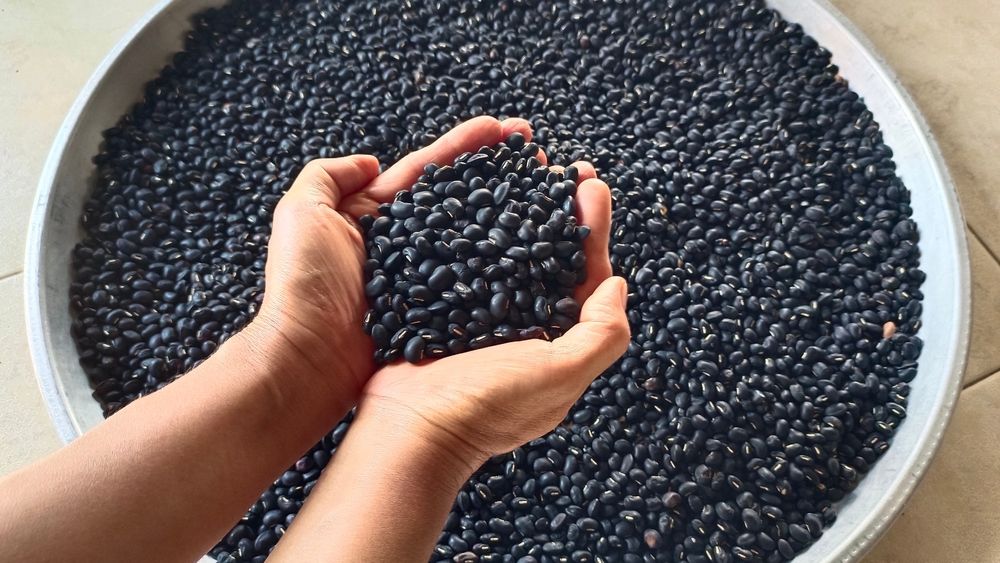
Beans are an incredibly healthy, high-protein option, packed with fiber and delivering about 7.5 grams of protein per 1/2 cup (cooked). "The combination of protein and fiber makes beans highly satisfying, helping reduce calorie intake at meals and preventing overeating between meals and at your next meal," say The Nutrition Twins. "In fact, a study in Food and Nutrition found that those who ate a protein-rich bean meal consumed 12% fewer calories at their next meal due to the fullness beans provide."
They add, "Anything that curbs snacking on junk food is great for your waistline. Plus, beans are versatile, delicious, affordable, and sustainable, making them one of the best protein sources for weight loss."
Greek yogurt
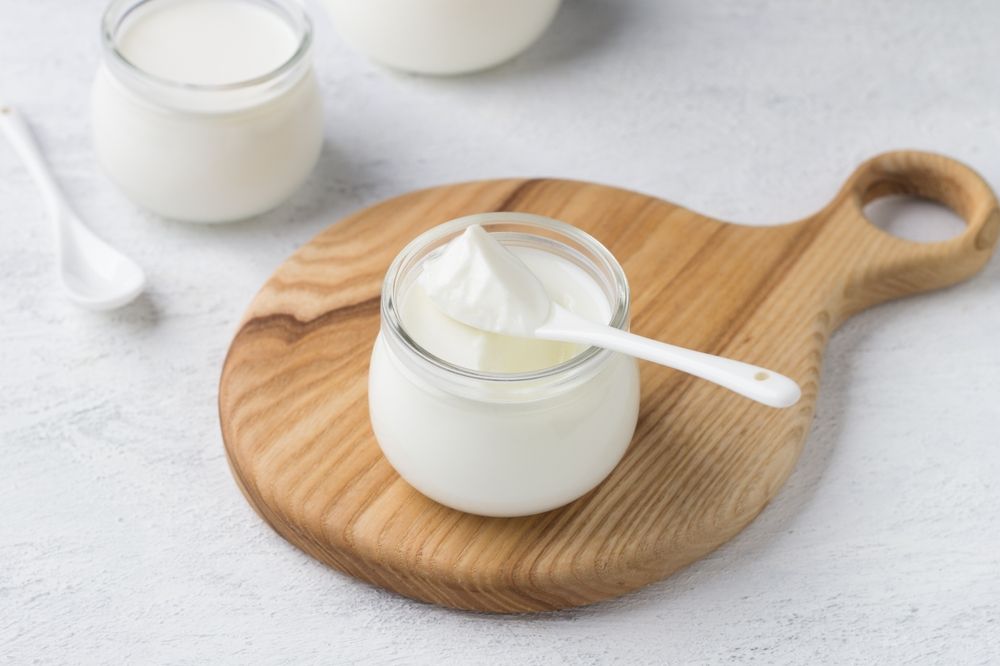
“Greek yogurt is one of the best high-protein foods for weight loss, especially for breakfast or a snack,” says Lainey Younkin, MS, RD, weight loss dietitian at Lainey Younkin Nutrition.
Each 5.3-ounce serving of Greek yogurt provides an impressive 15–17 grams of protein. Younkin suggests choosing a 2% or low-fat version for the healthiest option. “The bit of fat, combined with protein, will help keep you full longer. Add berries for extra fiber and natural sweetness.”
Pea protein
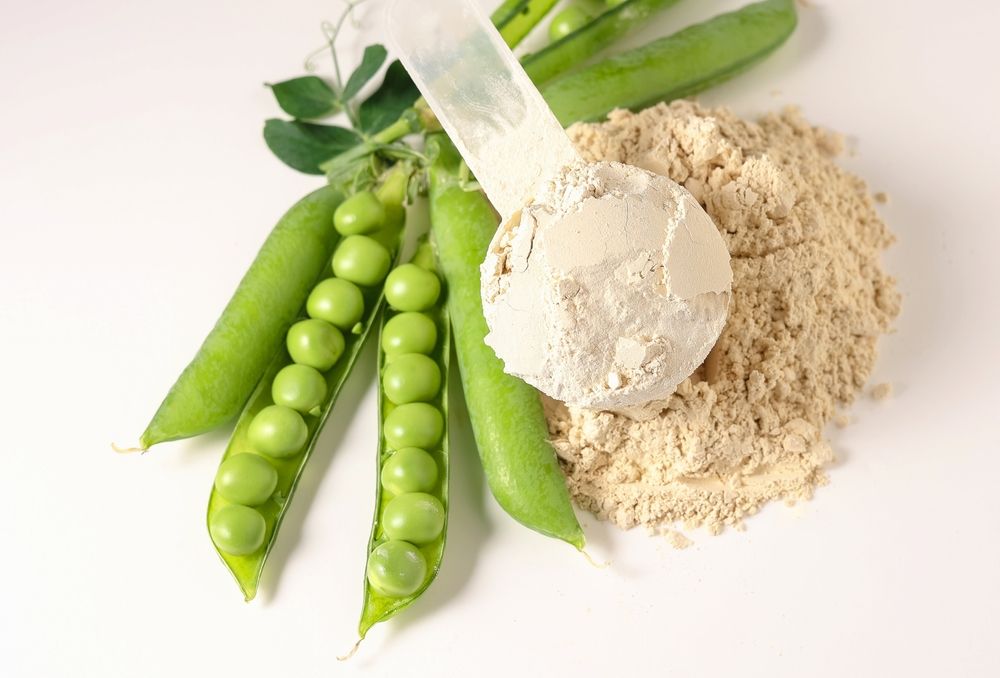
Though "pea protein" might not sound the most appealing, this plant-based protein offers an impressive 21 grams of protein per 21-gram serving, making it an excellent choice for vegans or those looking to cut down on dairy.
“Pea protein is a fantastic and often overlooked source of plant protein, especially for weight loss,” say The Nutrition Twins. “Studies even show it may be more effective than whey protein in curbing hunger.”
For easy incorporation, The Nutrition Twins recommend blending pea protein into a fruit smoothie. “The combination of protein and fiber from the fruit and pea protein helps keep energy and blood sugar levels steady, reducing cravings and overeating—key factors in supporting weight loss.”
Chicken breast
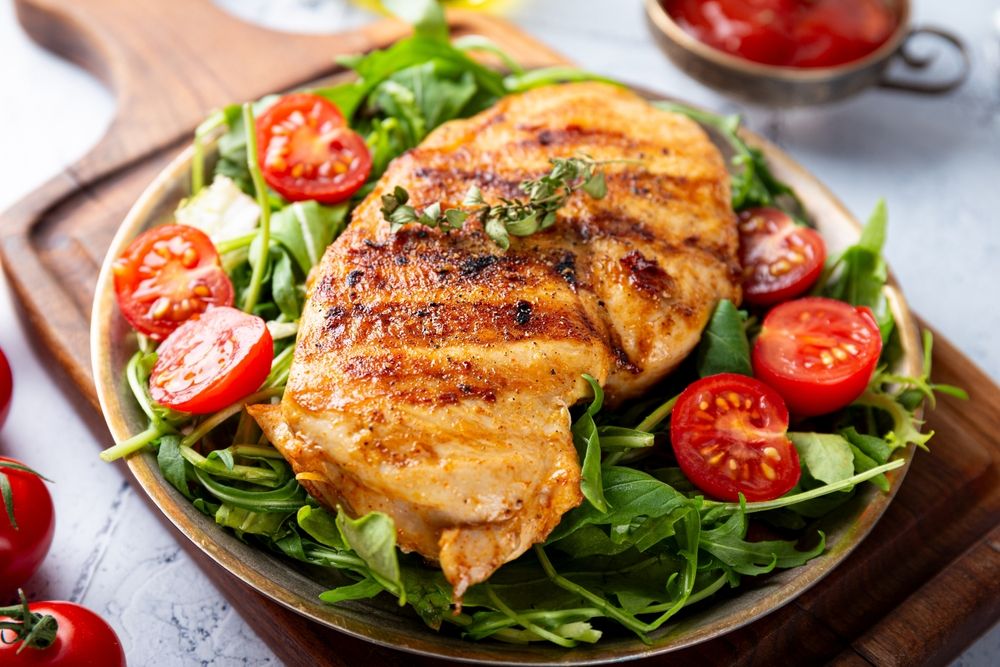
Chicken breast is one of the leanest and most versatile protein options for weight loss. Whether baked, grilled, added to a salad, or served over pasta, the possibilities are endless.
“Boneless, skinless chicken breast is an excellent high-protein choice because it’s lean, low in fat, and packed with quality protein,” says Carrie Gabriel, MS, RDN. A 4-ounce serving provides about 26 grams of protein, “along with essential amino acids necessary for muscle growth, repair, and overall body function,” Gabriel adds.
Regular yogurt
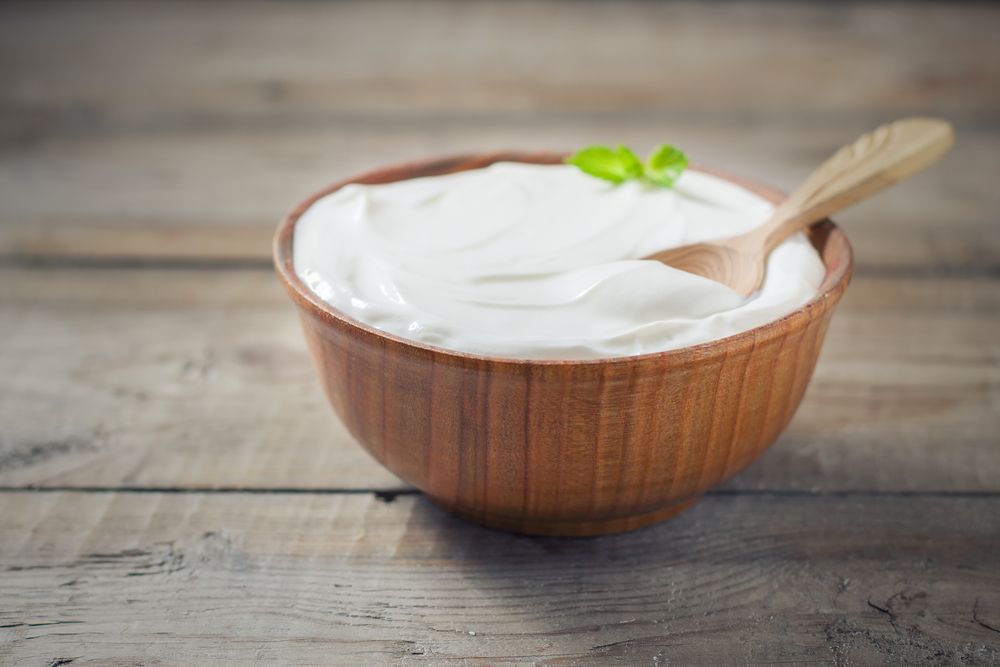
Greek yogurt is a top choice for high-protein foods supporting weight loss, but all types of dairy yogurt “provide high-quality protein with all essential amino acids,” says Toby Amidor, MS, RD, CDN, FAND. An 8-ounce container contains about 11.9 grams of protein.
“Whether for satiety or muscle preservation during weight loss, yogurt delivers a solid protein boost,” Amidor adds. “Including yogurt as part of a meal can help people feel fuller longer.” A 2023 systematic review found that higher dairy intake, regardless of fat content, showed no negative effects on weight, BMI, cholesterol, or blood pressure—and yogurt specifically was linked to improved waist circumference.
Tuna
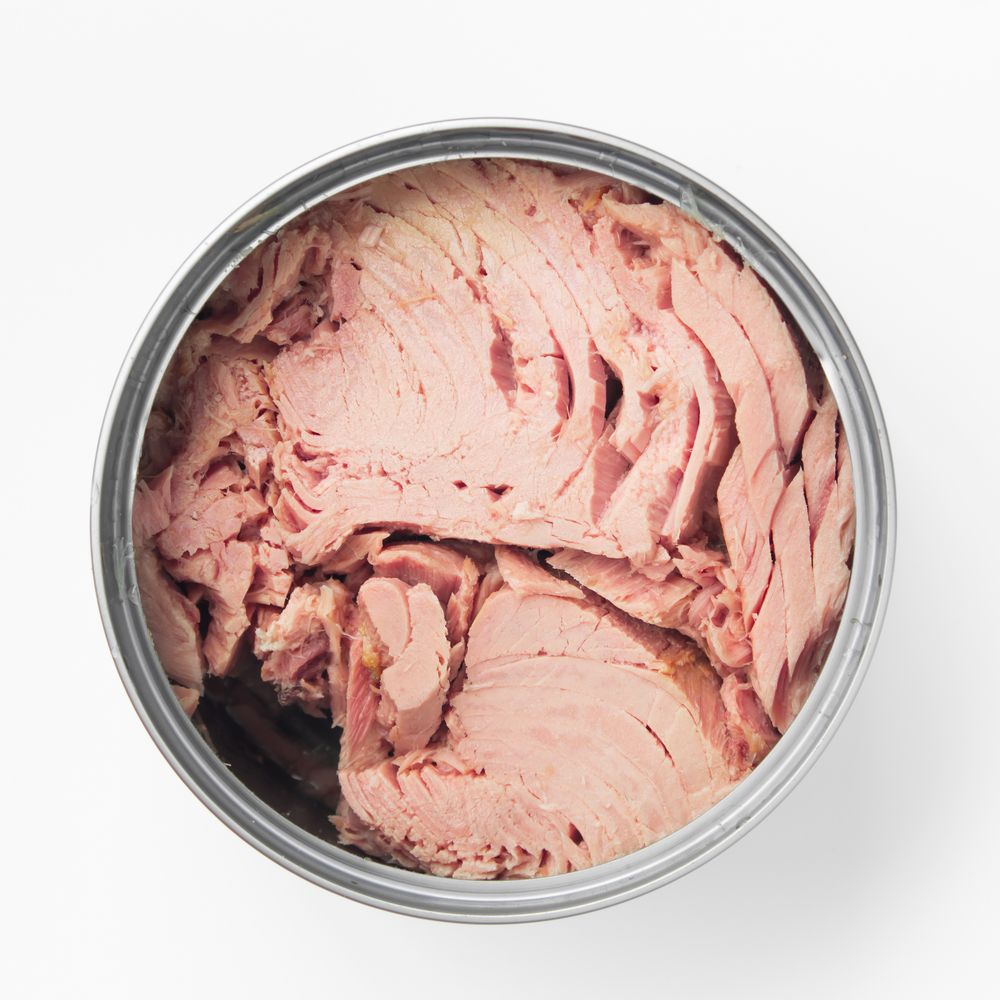
Canned tuna is one of the simplest ways to pack in a substantial protein boost. It’s versatile enough to enjoy in a sandwich, toss on a salad, pair with crackers, or even eat straight from the can. However you choose to enjoy it, each 3-ounce serving provides nearly 25 grams of complete protein along with a healthy dose of beneficial fats.
Quinoa
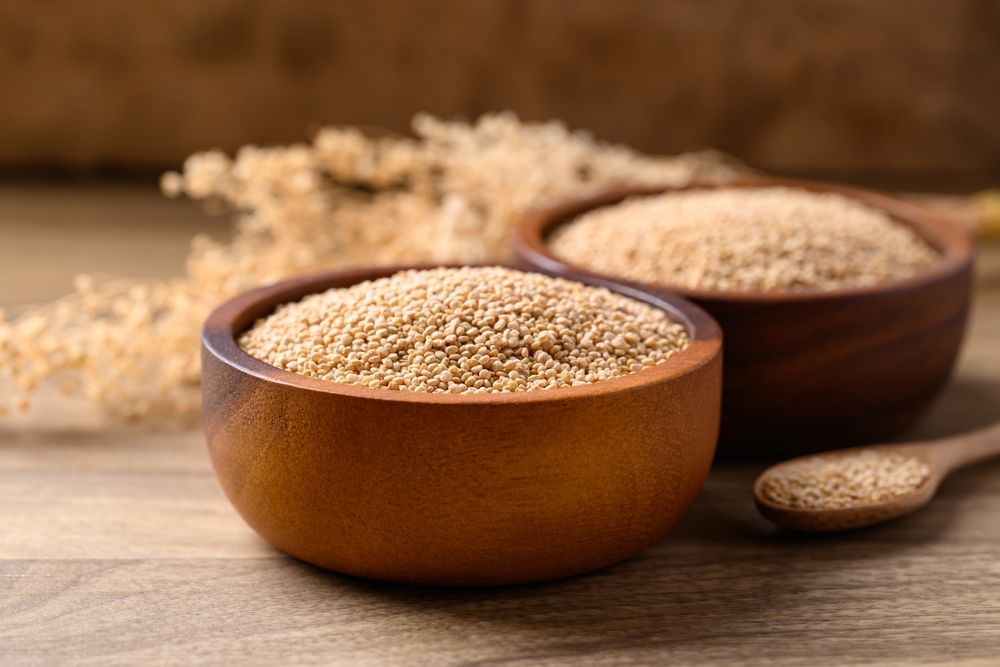
With 8 grams of protein per cup, quinoa may not seem like a powerhouse, but it’s one of the rare plant-based sources that qualifies as a complete protein, containing all the essential amino acids needed for protein synthesis in the body. Quinoa makes an excellent, protein-rich substitute for white rice and pairs beautifully with a savory chicken breast or a generous serving of black beans.
Tofu
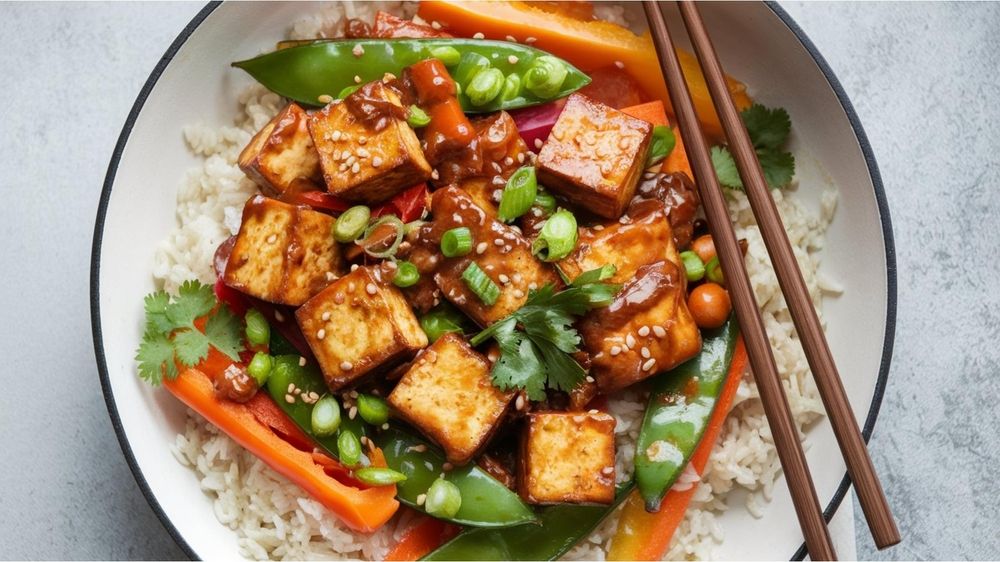
Tofu is another fantastic plant-based protein for weight loss and overall health. Like quinoa, tofu is a complete protein, providing 9.2 grams per 3-ounce serving. Its versatility makes it easy to enjoy—slice and fry it, add it to a stir-fry, or even blend it into a smoothie. With just over 3 grams of fat per serving, tofu is a low-fat, high-protein choice that can support your weight-loss goals.
Salmon
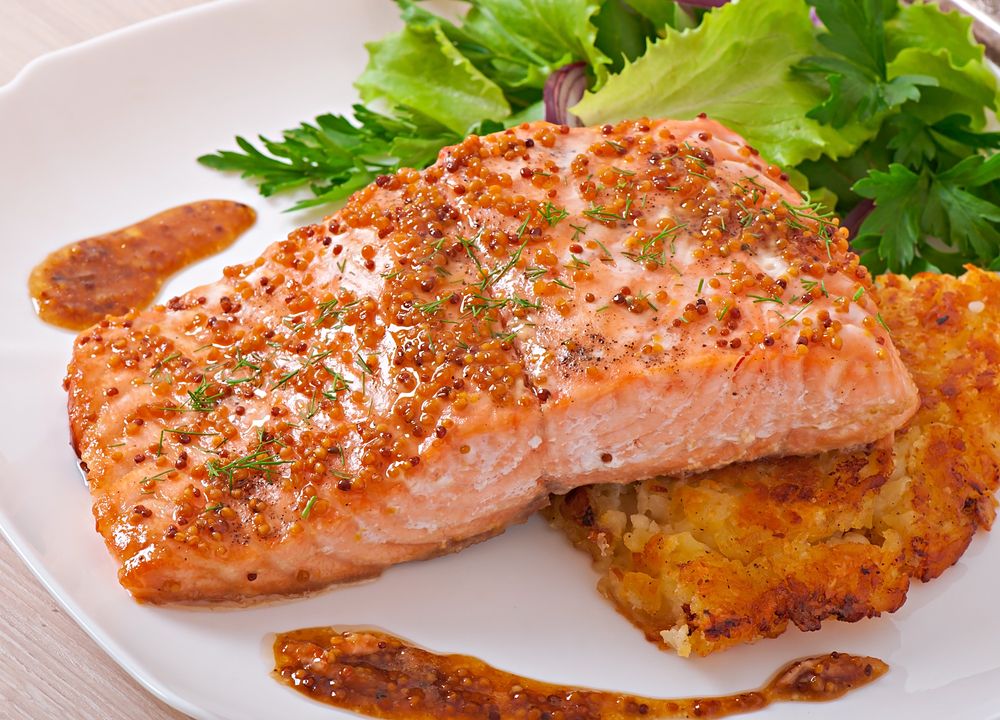
If you love seafood, consider adding more fatty fish like salmon to your weight loss plan—each 3-ounce serving offers 15.6 grams of protein.
“A diet rich in omega-3 fatty acids can enhance satiety for some people, and salmon is one of the best sources of this healthy fat,” says Lauren Manaker, MS, RDN, author of The First Time Mom's Pregnancy Cookbook and Fueling Male Fertility. “Research shows that including fish like salmon in a calorie-restricted diet led to weight loss after four weeks, compared to a similar diet without seafood. This suggests that adding seafood to a balanced, calorie-restricted plan may boost weight loss.”
Lentils
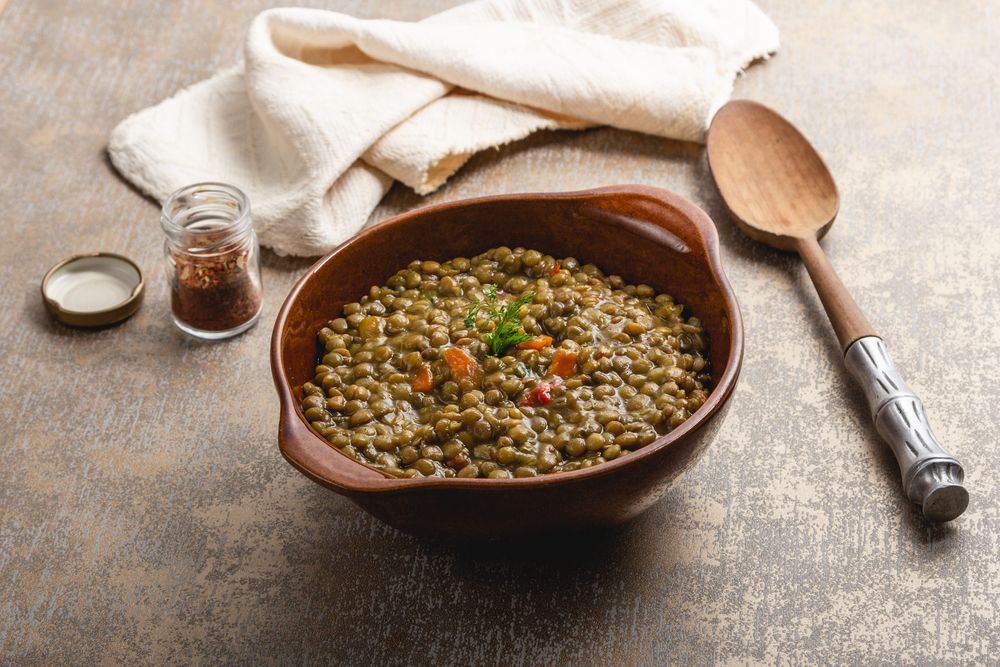
Although lentils are technically grain legumes, or pulses, they’re often overlooked as a high-protein food. Yet, with 10 grams of protein per 35-gram serving, they’re an excellent protein source, packed with beneficial vitamins and nutrients.
“Lentils provide fiber, antioxidants, and essential micronutrients, and research shows they can support weight loss even without calorie restriction,” says Lauren Manaker, MS, RDN. “Replacing fatty meats with lentils is a simple, effective way to promote weight loss.”
Walnuts
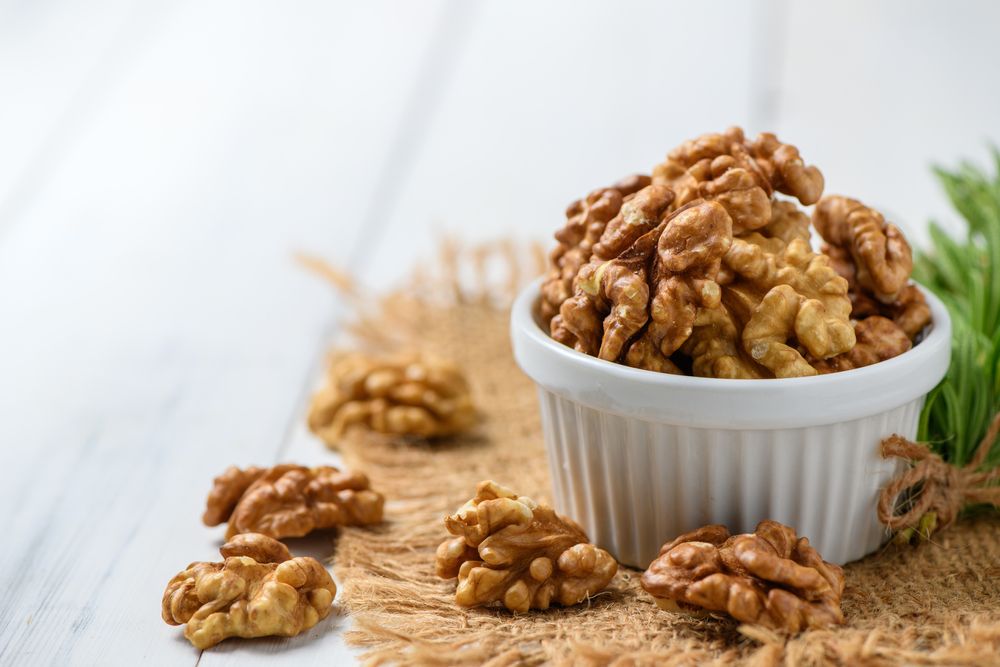
“Increasing daily nut consumption is linked to less long-term weight gain and a reduced risk of obesity in adults, so substituting 0.5 servings a day of less healthful foods with nuts may help prevent weight gain and obesity over time,” says Lauren Manaker, MS, RDN.
Walnuts, in particular, offer 4.3 grams of protein per ounce and are highly effective for weight loss support. “Eating walnuts is associated with greater satiety, which can aid in long-term weight loss,” adds Manaker. “They’re also the only tree nut that provides an excellent source of alpha-linolenic acid (ALA), a plant-based omega-3 essential fatty acid.”
Whey protein powder
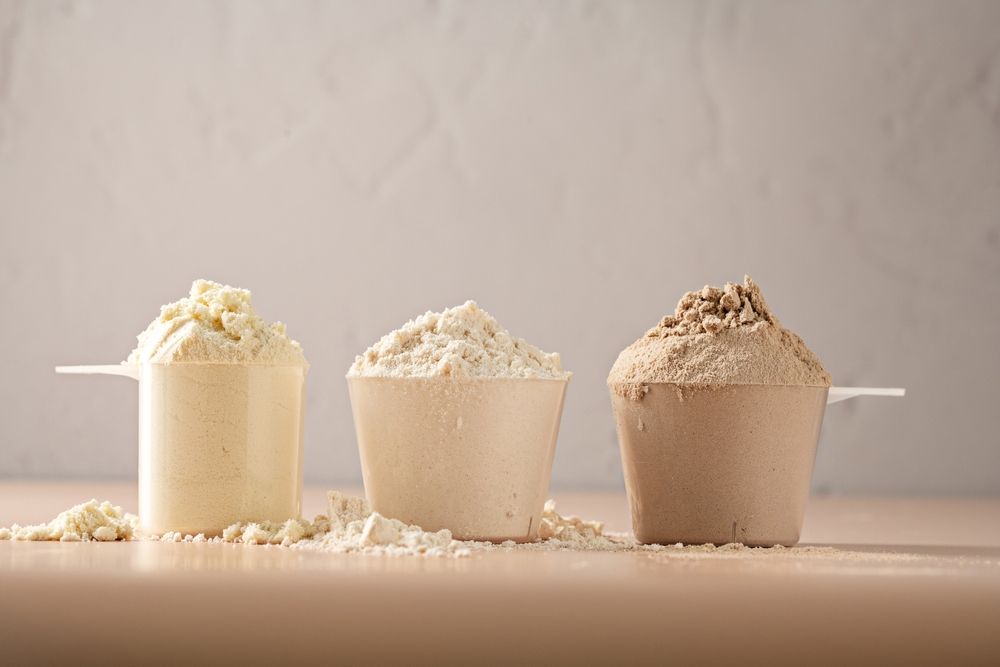
For a healthy protein boost in your shake, consider whey protein, which provides 20 grams of protein per 25.3-gram serving.
“Whey protein is highly effective for promoting fullness, as it contains all essential amino acids and is quickly absorbed by the body,” says Courtney D'Angelo, MS, RD, author at Go Wellness. “Numerous studies show that whey protein supports weight loss by reducing body fat and increasing lean muscle mass. It also helps you stay full longer, curbing food cravings throughout the day.”
One key difference with whey protein is its dairy content, so if you’re dairy-free, a plant-based protein powder may be a better choice.
Casein protein powder
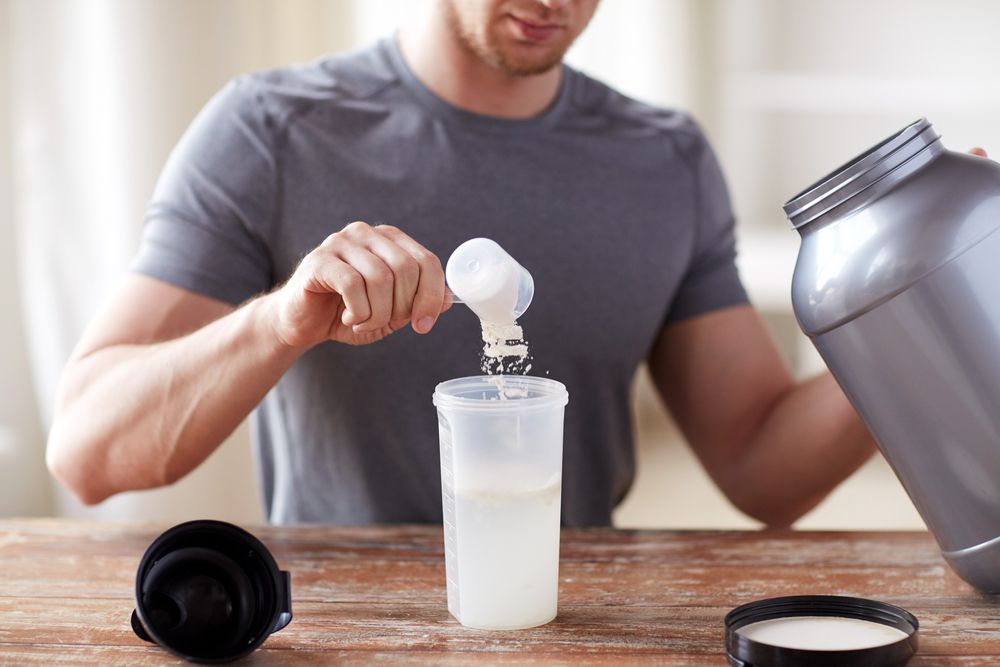
Casein protein is another popular option for those aiming to meet weight loss goals, offering 20 grams of protein per 33-gram serving.
“Casein is similar to whey in that it’s milk-based and contains all essential amino acids, but the key difference is its slower absorption rate,” explains Courtney D'Angelo, MS, RD. “This means casein helps you feel full for a longer time than whey protein. While it may not be as effective for rapidly building muscle mass, it is still more effective than many other protein sources in supporting satiety.”
Low-fat cottage cheese
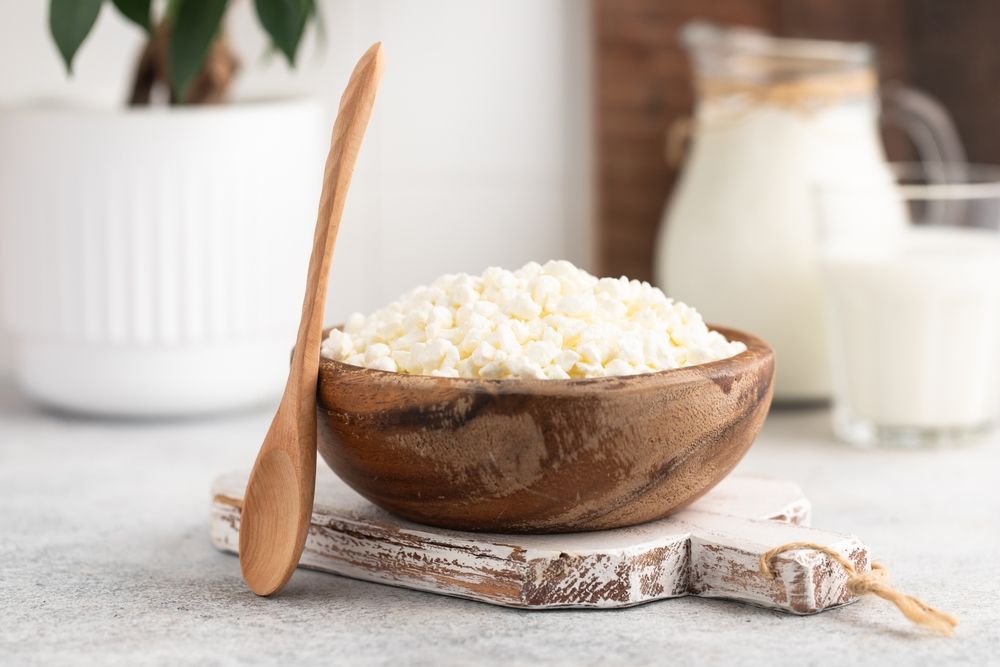
Cottage cheese might not be the first food that comes to mind for protein, but the right type can provide a significant protein boost with minimal fat and sugar.
A standard cup of 2% cottage cheese packs over 24 grams of protein, along with 5 grams of fat and 9 grams of natural sugar from lactose. For extra flavor, try adding fresh fruit or a drizzle of honey.

